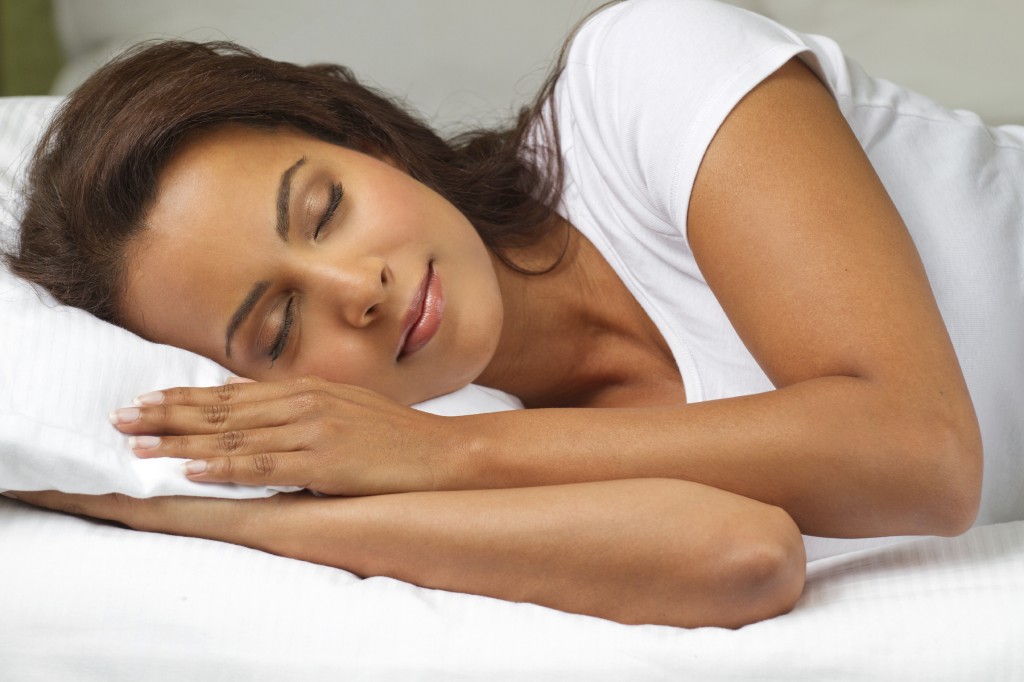When you can’t sleep, the temptation to pop a sleeping pill is strong. But there’s a large body of research indicating that sleeping pills may contribute to as many as 500,000 deaths each year in the United States. Most sleeping pills are “sedative hypnotics”— a class of drugs used to treat anxiety. Examples include Xanax, Valium, Lunesta, and Ambien. Most of these drugs are highly addictive and come with a range of side effects, such as dizziness, drowsiness, and impaired coordination.
Here are four natural products that can help improve sleep quality—without the deleterious side effects.
Melatonin
The most popular natural aid for sleep is melatonin. Supplementation with melatonin has been shown in several studies to be very effective in helping induce and maintain sleep in both children and adults, and in both people with normal sleep patterns and those with insomnia. However, the sleep-promoting effects of melatonin are most apparent if melatonin levels in the body are low. In other words, using melatonin is not like taking a sleeping pill. It has a sedative effect only when one’s melatonin levels are low.
Melatonin supplementation appears to be most effective in treating insomnia in the elderly, in whom low melatonin levels are quite common. A dose of 3 mg at bedtime is usually enough, because doses as low as 0.1–0.3 mg have been shown to produce a sedative effect when melatonin levels are low.
Melatonin appears to have no serious side effects as long as one takes the recommended dosage.
5-HTP (5-hydroxytryptophan)
5-HTP is converted in the brain to serotonin—an important initiator of sleep. It is one step closer to serotonin than L-tryptophan, and has shown more consistent results in promoting and maintaining sleep, even though used at lower dosages.
One of the key benefits of 5-HTP is its ability to increase REM sleep (typically by about 25%), while increasing deep sleep stages 3 and 4 without lengthening total sleep time. The sleep stages that are reduced to compensate for the increases are non-REM stages 1 and 2—the least important stages. To take advantage of the sleep-promoting effects of 5-HTP, the recommended dosage is 50–150 mg, 30–45 minutes before retiring. Start with the lower dose for at least three days before increasing it if necessary.
Read more: http://www.care2.com/greenliving/4-supplements-to-help-your-sleep.html#ixzz2C2MROXhf
L-theanine
L-theanine is a unique amino acid found almost exclusively in tea plants (Camellia sinensis). Clinical studies have demonstrated that L-theanine reduces stress, improves the quality of sleep, diminishes the symptoms of PMS (premenstrual syndrome), heightens mental acuity, and reduces the negative side effects of caffeine. At typical dosages, e.g., 100–200 mg, L-theanine does not act as a sedative, but it does significantly improve sleep quality. It is an excellent support agent to melatonin and 5-HTP.
When taken together, the above three ingredients exert synergistic effects to promote restful sleep. NOTE: At higher single dosages, e.g., 600 mg, L-theanine does exert a sedative effect.
Valerian
In terms of herbal medicine, there is no question that valerian (Valeriana officinalis) is the most popular remedy for insomnia. Recent scientific studies have substantiated valerian’s ability to improve sleep quality and relieve insomnia. In a large double-blind study involving 128 subjects, it was shown that an aqueous extract of valerian root improved the subjective ratings for sleep quality and sleep latency (the time required to get to sleep), but left no “hangover” the next morning.
In a follow-up study, valerian extract was shown to significantly reduce sleep latency and improve sleep quality in sufferers of insomnia and was suggested to be as effective in reducing sleep latency as small doses of benzodiazepines (Valium).
The difference, however, arises from the fact that these drugs also result in increased morning sleepiness. Valerian, on the other hand, actually reduces morning sleepiness. As a mild sedative, valerian may be taken at the following dose 30–45 minutes before retiring: dried root (or as tea): 1–2 g; tincture (1:5): 4–6 ml (1–1.5 tsp); fluid extract (1:1): 1–2 ml (0.5–1 tsp); or valerian extract (0.8% valeric acid): 150–300 mg.
If morning sleepiness does occur, reduce the dosage. If the dosage was not effective, be sure to eliminate those factors that disrupt sleep, such as caffeine and alcohol, before increasing the dosage.
* * * * *
Adapted from the new book, Stress, Anxiety and Insomnia! What the Drug Companies Won’t Tell You and Your Doctor Doesn’t Know.
Michael T. Murray ND is a naturopathic physician regarded as one of the world’s top authorities on natural medicine. An educator, lecturer, researcher, and health food industry consultant, he is the author of more than 30 books, including his newest with coauthor Joseph Pizzorno ND, The Encyclopedia of Natural Medicine (Atria, 2012). Learn more at www.DrMurray.com. If you subscribe to Dr. Murray’s Fast Facts newsletter online, and you will receive a free copy of his book Stress, Anxiety and Insomnia.
Read more: http://www.care2.com/greenliving/4-supplements-to-help-your-sleep.html#ixzz2C2NCSqbG



